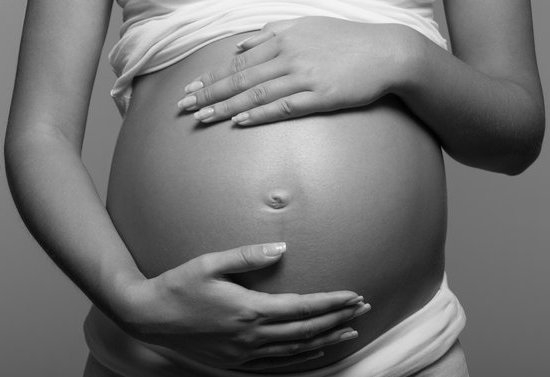ART: Assisted Reproductive Technology. This is a term used to describe procedures that help couples conceive a child. This can include treatments like in vitro fertilization (IVF), artificial insemination, and embryo transfer.
BIRTH CONTROL: Methods used to prevent pregnancy. This can include condoms, the pill, the patch, the ring, and other hormonal methods. It can also include surgical procedures, like a tubal ligation or a vasectomy.
CONCEPTION: The process of becoming pregnant. Conception occurs when the sperm meets the egg and fertilizes it.
EGG: The female reproductive cell. Eggs are also called ova.
FERTILIZATION: The process of the sperm joining with the egg.
FETAL ALCOHOL SYNDROME (FAS): A birth defect that can occur when a pregnant woman drinks alcohol. FAS can cause a range of problems, including physical abnormalities and intellectual disabilities.
FETUS: The developing baby in the uterus.
IN VITRO FERTILIZATION (IVF): A fertility treatment in which eggs are removed from the woman’s body and fertilized with sperm in a lab. The fertilized eggs are then placed back into the woman’s uterus to grow and develop.
MENOPAUSE: The time in a woman’s life when her menstrual periods stop and she is no longer able to conceive a child. Menopause typically occurs in women around age 50.
MISCARRIAGE: A pregnancy that ends on its own, before the baby is born.
Ovarian reserve: The number and quality of eggs a woman has left.
OVARY: One of the two female reproductive organs. Ovaries produce eggs and the hormones estrogen and progesterone.
PREGNANCY: The condition of carrying a baby inside the womb.
STERILIZATION: A surgical procedure that permanently prevents a woman from getting pregnant. Sterilization can be done by cutting or tying the fallopian tubes (tubal ligation) or by blocking the sperm’s path to the egg (vasectomy).
TUBAL LIGATION: A surgical procedure that cuts or blocks the fallopian tubes, preventing the woman from getting pregnant.
VASECTOMY: A surgical procedure that blocks the sperm’s path to the egg, preventing the man from getting pregnant.
Does Iud Affect Fertility
?
There is a lot of confusion surrounding the topic of IUDs and fertility. It’s not surprising – after all, the internet is full of conflicting information. So, what’s the truth? Does the IUD affect fertility?
The short answer is: yes, the IUD can affect fertility. However, the effect it has varies from woman to woman. Some women find that their fertility returns to normal once they remove their IUD, while others find that their fertility is permanently affected.
There are a few reasons why the IUD can affect fertility. First, the IUD can cause inflammation in the uterus, which can make it difficult for the sperm to reach the egg. Additionally, the IUD can cause the uterine lining to thin, which can make it difficult for a fertilized egg to implant.
If you are considering getting an IUD, it is important to talk to your doctor about how the IUD may affect your fertility. If you are concerned about your fertility, it may be a good idea to choose a non-hormonal IUD, such as the ParaGard.
Metformin Pcos Fertility
Metformin is a medication that is used to treat type 2 diabetes. It is also sometimes used to treat polycystic ovary syndrome (PCOS). Metformin helps to control blood sugar levels by decreasing the amount of sugar that is produced by the liver and by making the body more sensitive to the insulin that is produced.
Metformin can improve fertility in women who have PCOS. It helps to correct the hormone imbalance that is often seen in women with PCOS, and it can help to improve ovulation. Metformin is often used in combination with other fertility medications, such as clomiphene or gonadotropins.
Fertility Predictor
There are many fertility predictors on the market, but which one is right for you?
The Fertility Tracker by Kindara is an app that helps you track your fertility signs so that you can predict your ovulation date. It is based on the BBT (basal body temperature) method, and it is very accurate.
To use the app, you need to take your basal body temperature each morning. The app will then calculate your ovulation date and show you when you are most likely to get pregnant.
The Fertility Tracker also includes a calendar so that you can track your menstrual cycle, and it has a community forum where you can ask questions and share advice.
If you are trying to get pregnant, the Fertility Tracker is a great app to use. It is accurate and easy to use, and it will help you to predict your ovulation date.
Cny Fertility Syracuse Ny
Cny Fertility is a premier fertility center located in Syracuse, New York. We offer a full range of fertility services, from basic fertility evaluations to advanced reproductive technologies. Our physicians are board certified in reproductive endocrinology and infertility, and have years of experience helping couples achieve their dreams of becoming parents.
We understand that infertility can be a difficult and emotional experience, and we are dedicated to providing our patients with the highest quality care. We offer a wide range of fertility treatments, including in vitro fertilization (IVF), intracytoplasmic sperm injection (ICSI), and embryo freezing. We also offer a number of unique services, such as our egg freezing program and our donor egg program.
We are proud to offer our patients the latest advances in fertility technology, and we are constantly working to improve our services. We are committed to providing our patients with the best possible chance of success, and we are confident that we can help you achieve your dream of becoming a parent.
If you are looking for a fertility center in Syracuse, New York, please contact Cny Fertility today. We would be happy to answer any of your questions and help you start on the path to parenthood.

Welcome to my fertility blog. This is a space where I will be sharing my experiences as I navigate through the world of fertility treatments, as well as provide information and resources about fertility and pregnancy.





